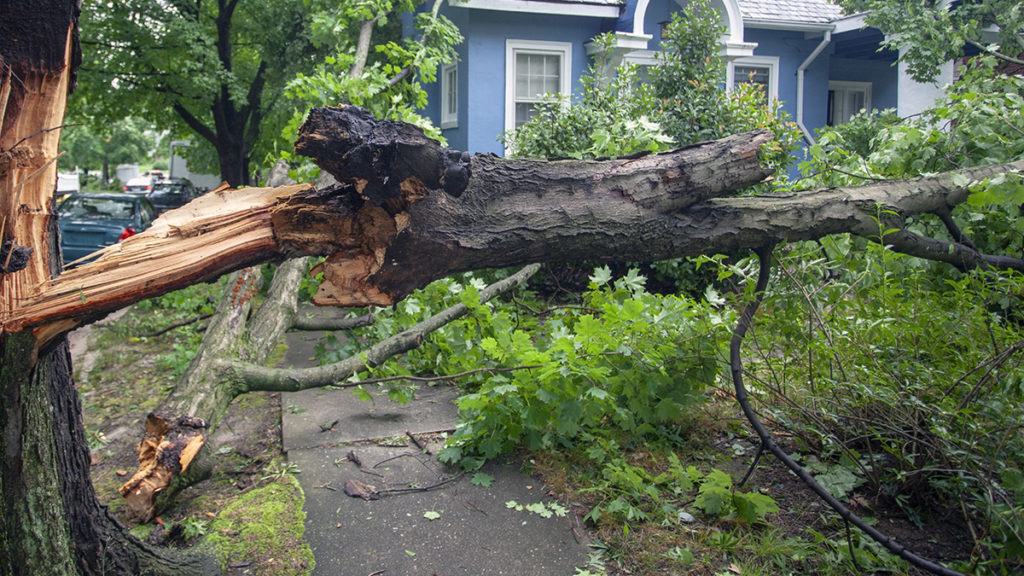As hurricane season approaches, you might find yourself counting the days and wondering if you have enough coverage this year. Hurricane coverage is something you hope to never need, but knowing you have the right protection can help you sleep better at night. The six months of hurricane season is a long time to be at risk. As recently as 2017, Hurricanes Harvey, Irma and Maria resulted in average payout of $91,735 per flood claim.1
When coastal customers start to weigh the policy particulars for their homes and businesses, they ask us several recurring questions. Here are 5 things to consider before you reassess your coverage. Just don’t wait too long before storms are on the radar. Moratoriums happen quickly, and if one is in place, it’s likely you won’t be able to buy the right coverage!
What Type of Coverage Should I Get?
If you already live in a hurricane-prone region of the United States, you’re probably aware there is technically no such thing as “hurricane insurance.” Instead, homeowners and renters often purchase a mix of coverages to be adequately protected. The two main types of policies you need to protect your belongings during hurricane season include flood insurance and renters or homeowners insurance, depending on your situation.
How Late in the Season Can I Purchase Coverage or Make Policy Changes?
The Atlantic hurricane season begins June 1, so you definitely want your insurance in place by then! It’s important to be aware that different moratoriums apply to some of these coverage types before you can purchase them. What is a moratorium? Simply put, it is a temporary pause in issuing or updating policies before the likelihood of a natural disaster.
Purchasing an entirely new policy? With National Flood Insurance Program (NFIP) policies, there is typically a 30-day waiting period. However, with a private policy, you may be able to begin coverage within 15 days of paying your premium.
Any Other Specific Deductibles?
To keep your belongings covered during exceptional events, you may want to opt for a higher windstorm and hail deductible on your home insurance policy to help lower your premiums.\
There are two kinds of wind damage deductibles: hurricane deductibles, which apply solely to damage from hurricanes, and windstorm or wind/hail deductibles, which covers wind damage from other wind-related events. Percentage deductibles typically vary from 1% of a home’s insured value to 5%.2 If you live in a coastal area with exceptionally high risk, don’t be surprised if your hurricane deductibles are higher.
Depending on where you live and your insurance company’s guidelines, windstorm and hail coverage may be excluded from the primary residential property insurance policy. Insurance companies determine the level of the wind/hail deductible and where it should apply, except in Florida, where state law often dictates these variables.2
What About My Vehicles?
While your home insurance or storm policies usually only apply to the building you own, a flooded vehicle from a storm surge would likely be covered if you’ve purchase comprehensive coverage. Be aware however, comprehensive coverage is different from collision-only coverage. Four out of five drivers already choose comprehensive coverage but living in a hurricane-prone area would be a smart reason to consider an upgrade. 3
What If I’m Just Renting?
Similar to homeowners insurance, many renters policies won’t cover flood damage to your stuff. You probably want to consider the physical location of your place. If you have a fifth-floor condo that’s considerably inland, maybe you don’t need to worry as much. But if you’re renting a home or have a ground-floor apartment where water could surge, it could well be in your best interest to purchase flood insurance. Your landlord’s insurance should cover the structure of their building, but not your personal belongings.
For both renters and homeowners, how wind damage is covered differs by state law. We recommend contacting your insurance company about coverage details specific to your area. If you live in an area prone to violent storms, consider purchasing a comprehensive policy that specifically addresses storm damage.4
At Answer Financial, we’re happy to talk with you about hurricane coverage that’s relevant to your location. The first day of hurricane season is approaching soon. Call 1-888-737-7000 to talk about flood protection with one of our insurance experts now.
